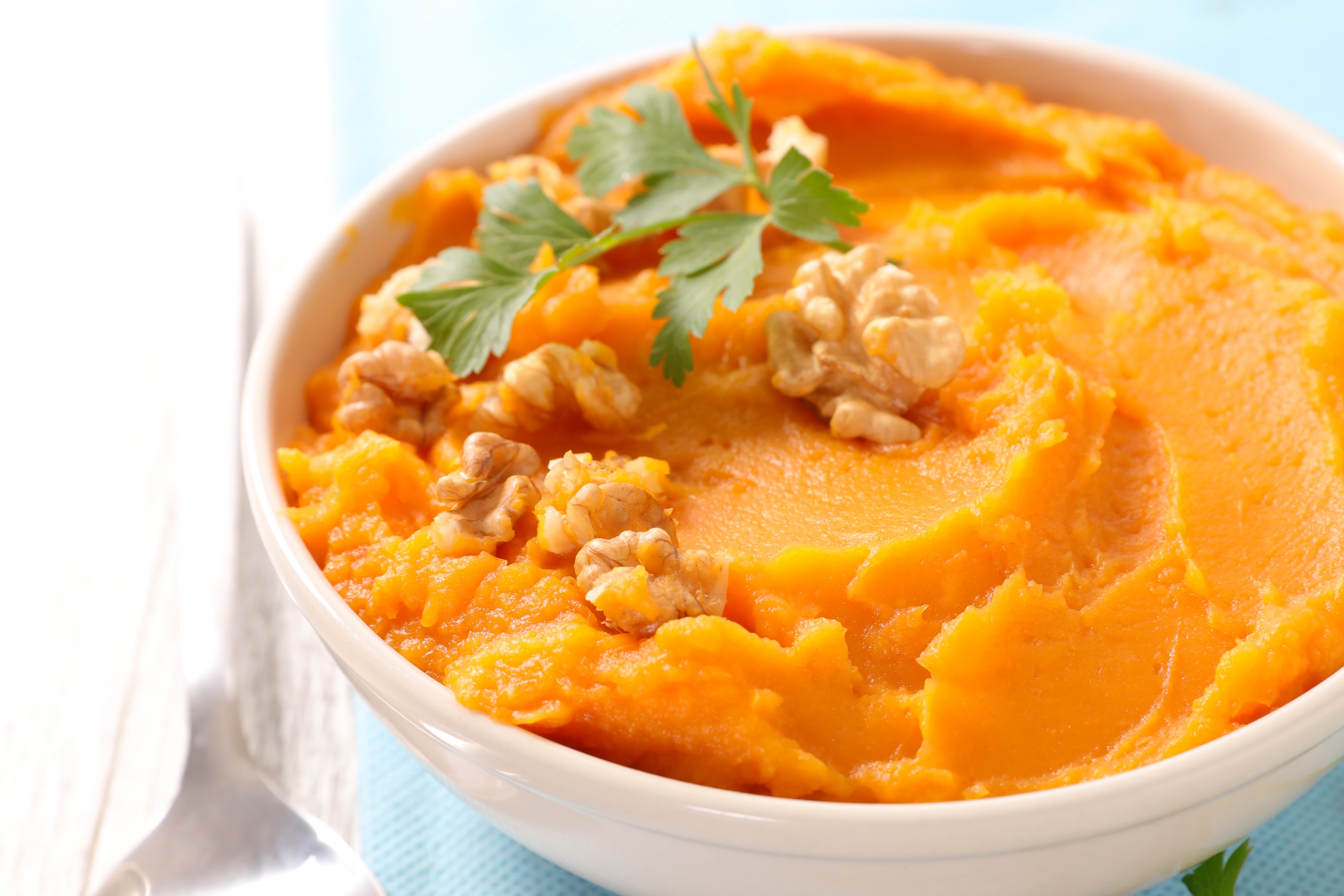This post may contain paid and/or affiliate links. I may make a small commission at no extra cost to you. Please see our Privacy Policy.
Are you struggling to come up with new breakfast ideas for your 9-month-old baby? You’re not alone!
As your baby grows, their nutritional needs change. It can be challenging to keep up with their evolving palate. That’s why we’ve put together a list of 16 baby breakfast ideas that are perfect for 9-month-olds.
Whether you’re doing baby-led weaning or spoon-feeding, these breakfast ideas are packed with nutrients that will help your little one grow and thrive.
From fruity purees to soft muffins and savory oatmeal bars, there’s something for every baby on this list. So, get ready to inspire your breakfast routine and keep your baby happy and healthy!
1. Banana Oat Pancakes
If you’re looking for a quick and easy breakfast idea for your 9-month-old, banana oat pancakes are a great option. This recipe is simple and requires only a few ingredients, making it perfect for busy mornings.
To make these pancakes, you’ll need mashed ripe bananas, rolled oats, eggs, and a pinch of cinnamon.
Mix the ingredients together until just incorporated and spoon the batter onto a medium skillet over medium-low heat. Cook for 3-4 minutes on each side until the pancake is cooked through.
For babies 6-9 months old, serve the pancakes as miniature pancakes that they can easily grab and gnaw on.
For babies 9-18 months old, cut the pancakes into small pieces that they can easily pick up to practice their pincer grasp and fine motor skills.
Bananas are a good source of potassium, vitamin C, and dietary fiber, while oats are packed with complex carbohydrates and fiber. This makes banana oat pancakes a nutritious breakfast option for your little one. Plus, they’re delicious and easy to make!
2. Avocado Toast Fingers
Avocado toast is a popular breakfast item for adults, but it can also be a great option for babies. Avocado is packed with healthy fats, fiber, and other essential nutrients that are important for your baby’s growth and development.
To make avocado toast for your baby, simply mash up some avocado and spread it on a piece of whole grain bread.
For babies who are just starting out with finger foods, you can cut the toast into strips that are easy for them to hold and chew. As your baby gets older and more comfortable with finger foods, you can cut the toast into smaller pieces or cubes.
Avocado toast can be a versatile breakfast option for your baby. You can add other healthy ingredients like hard-boiled or scrambled eggs for some extra protein.
You can also try topping the avocado toast with some diced tomatoes or a sprinkle of cheese for some added flavor.
3. Blueberry Yogurt Bites
If you’re looking for a healthy and delicious breakfast option for your 9-month-old, blueberry yogurt bites are a great choice. These bites are easy to make and packed with nutrients that your baby needs to grow and thrive.
To make blueberry yogurt bites, you’ll need just a few simple ingredients: blueberries, yogurt, and a sweetener of your choice (optional).
Simply mix the ingredients together, spoon them into a silicone mold, and freeze until firm. Once frozen, you can pop the bites out of the mold and store them in an airtight container in the freezer.
Blueberries are a great choice for babies because they’re packed with antioxidants and other important nutrients. Yogurt is also a good choice because it contains protein and calcium, which are important for your baby’s growth and development.
When serving blueberry yogurt bites to your 9-month-old, be sure to supervise them and make sure they don’t choke on the frozen pieces.
You can also try thawing the bites slightly before serving them to make them easier to eat.
4. Sweet Potato Puree
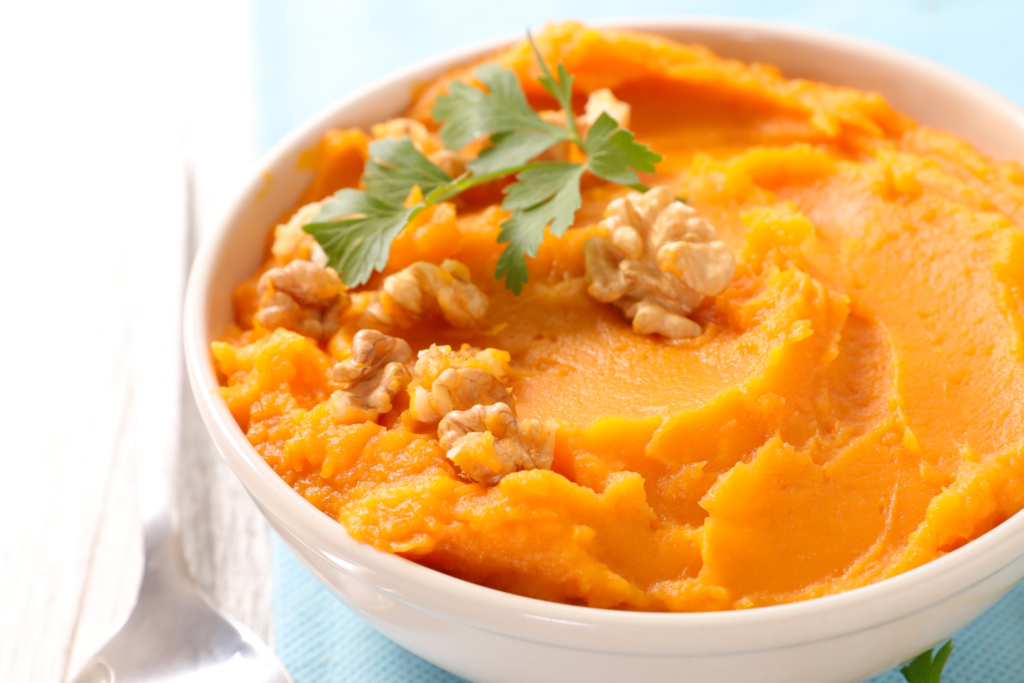
Sweet potato is a great first food for babies and can be introduced as early as six months old. It’s packed with nutrients such as vitamin A, potassium, and fiber. Sweet potato puree is easy to make and can be used as a base for many other baby food combinations.
To make sweet potato puree, simply bake, roast, or steam the sweet potato until it’s soft. Then, mash and puree the sweet potato with a hand blender or a baby bullet blender until it’s smooth.
You can add water as needed to reach the desired consistency. For a very smooth (soupy) puree, mix the sweet potato puree with liquid at 1:1 proportions.
Sweet potato puree can be served on its own or mixed with other purees such as apple, banana, or pear.
You can also add spices like cinnamon or nutmeg to give it some extra flavor. Another option is to serve sweet potato puree as a thick mash by removing the skin and mashing it with a fork or in a food processor or blender.
Sweet potato puree can also be used to make baby pancakes. Simply mix the sweet potato puree with flour, egg, and milk, and cook on a non-stick skillet until golden brown. This makes for a tasty and nutritious breakfast option for your little one.
5. Apple Cinnamon Oatmeal
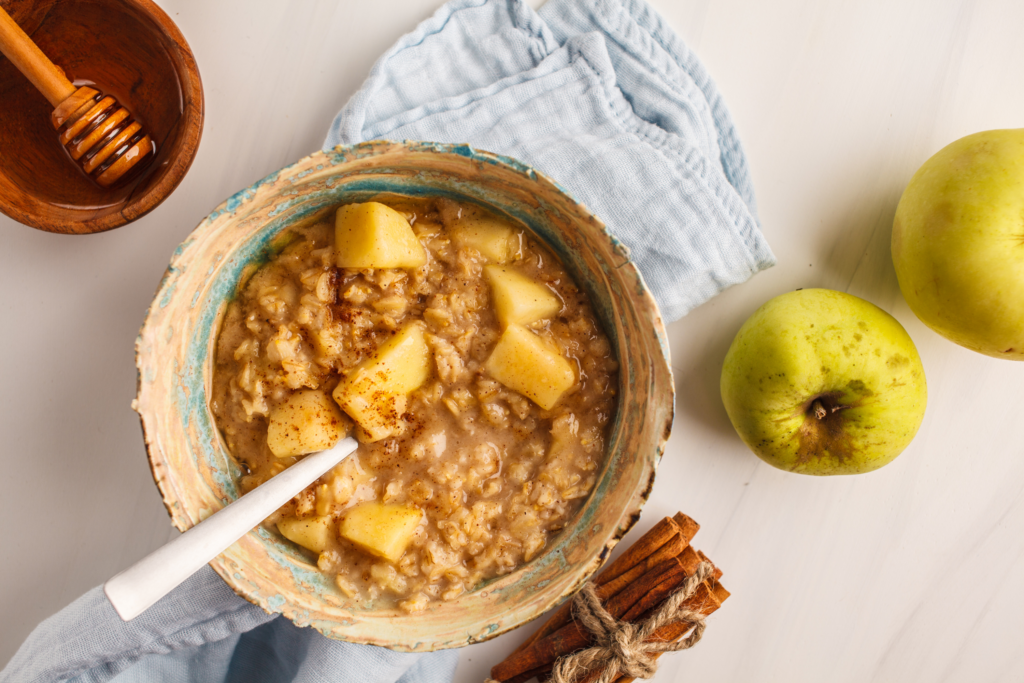
Apple Cinnamon Oatmeal is a delicious and nutritious breakfast option for your 9-month-old baby. It is easy to prepare and can be made in just a few minutes. This recipe is perfect for busy parents who want to provide their baby with a healthy and satisfying meal.
To make Apple Cinnamon Oatmeal, you will need a few simple ingredients such as rolled oats, grated apple, cinnamon, water, and a sweetener of your choice.
You can add nut or seed butter and optional toppings such as raisins, chopped nuts, or fresh fruit to enhance the flavor and nutritional value.
To prepare the oatmeal, heat water in a medium pot over high heat. When it’s almost about to boil, lower to medium-low and add all ingredients except the optional nut or seed butter and optional toppings.
Cook, stirring often, until the oats are softened and the water is absorbed, about 8-10 minutes. Once cooked, you can add the nut or seed butter and toppings of your choice.
Apple Cinnamon Oatmeal is a great source of fiber, vitamins, and minerals that are essential for your baby’s growth and development. It is also a great way to introduce new flavors and textures to your baby’s diet.
You can serve it warm or cold, depending on your baby’s preference.
6. Spinach and Cheese Scramble
Looking for a quick and easy breakfast that is packed with nutrients for your 9-month-old baby? Look no further than this spinach and cheese scramble recipe.
To make this recipe, you will need eggs, spinach, cream cheese, and butter.
First, blend the eggs, spinach, and cream cheese together in a blender until the spinach is broken down. Then, melt the butter in a large skillet over medium-low heat and add the egg mixture. Cook until the eggs are scrambled and fully cooked.
This recipe is a great way to introduce your baby to new flavors and textures.
Spinach is packed with vitamins and minerals, including iron, which is essential for healthy brain development. Meanwhile, eggs are a great source of protein and healthy fats, which will keep your baby feeling full and satisfied throughout the morning.
To make this recipe even more nutritious, consider adding some chopped vegetables, such as bell peppers or mushrooms, to the egg mixture.
You can also sprinkle some grated cheese on top for added flavor and texture.
7. Mango Chia Pudding
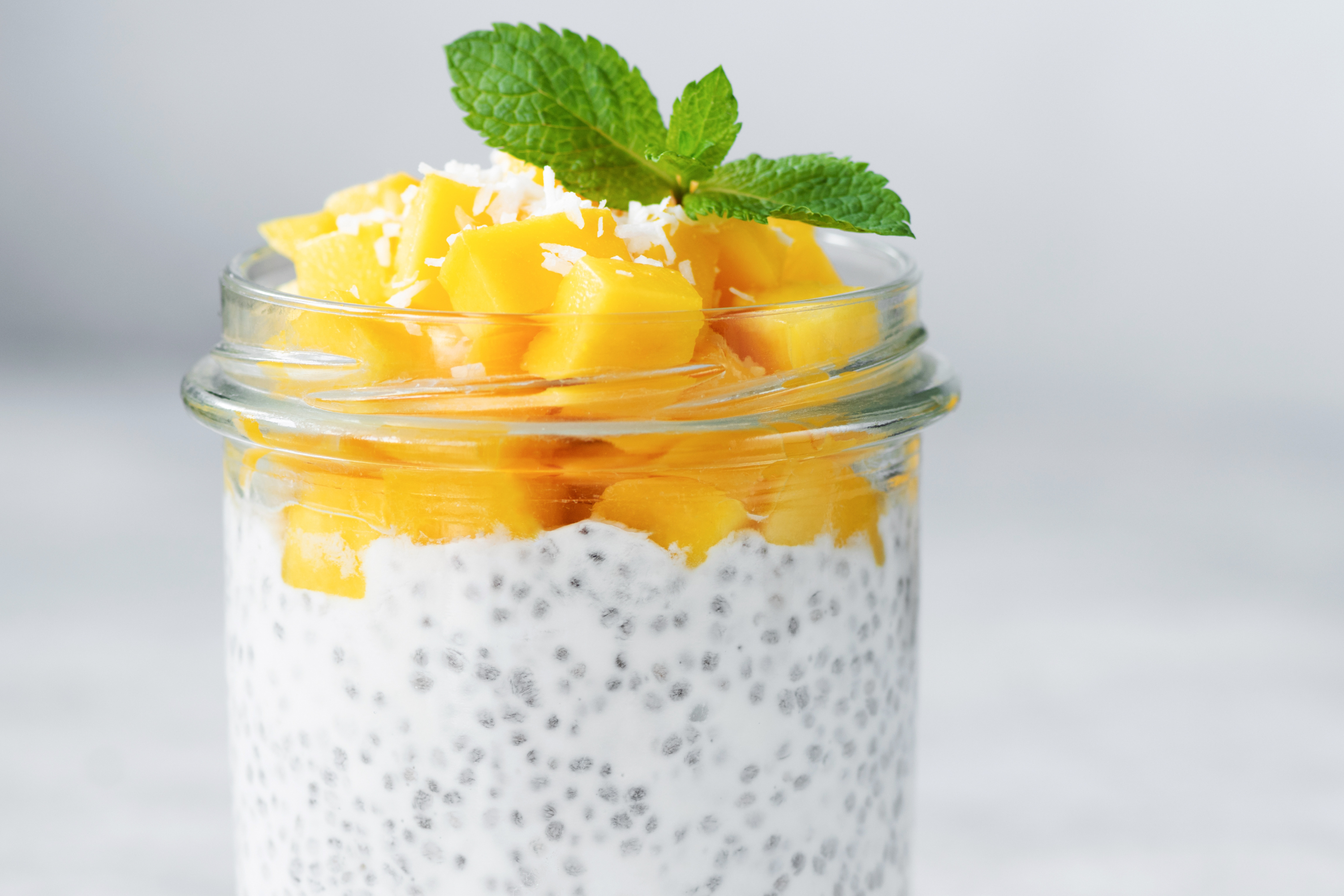
Looking for a healthy and delicious breakfast option for your 9-month-old? Mango chia pudding is a great choice!
Rich in fiber, protein, and healthy fats, chia seeds are an excellent food for babies. Plus, mangoes are packed with vitamins and minerals, making this pudding a nutritious and tasty meal.
To make mango chia pudding, simply blend diced mango, chia seeds, coconut milk, cinnamon, and lime juice in a blender or food processor until smooth.
Then, refrigerate the mixture for at least two hours or overnight. Once the pudding has set, you can serve it to your little one for a nutritious and filling breakfast.
You can also customize this recipe by adding other fruits or toppings.
Ripe bananas, strawberries, or other fresh fruit make a great addition to mango chia pudding. You can also sprinkle some shredded coconut or chopped nuts on top for added texture and flavor.
8. Carrot and Apple Muffins
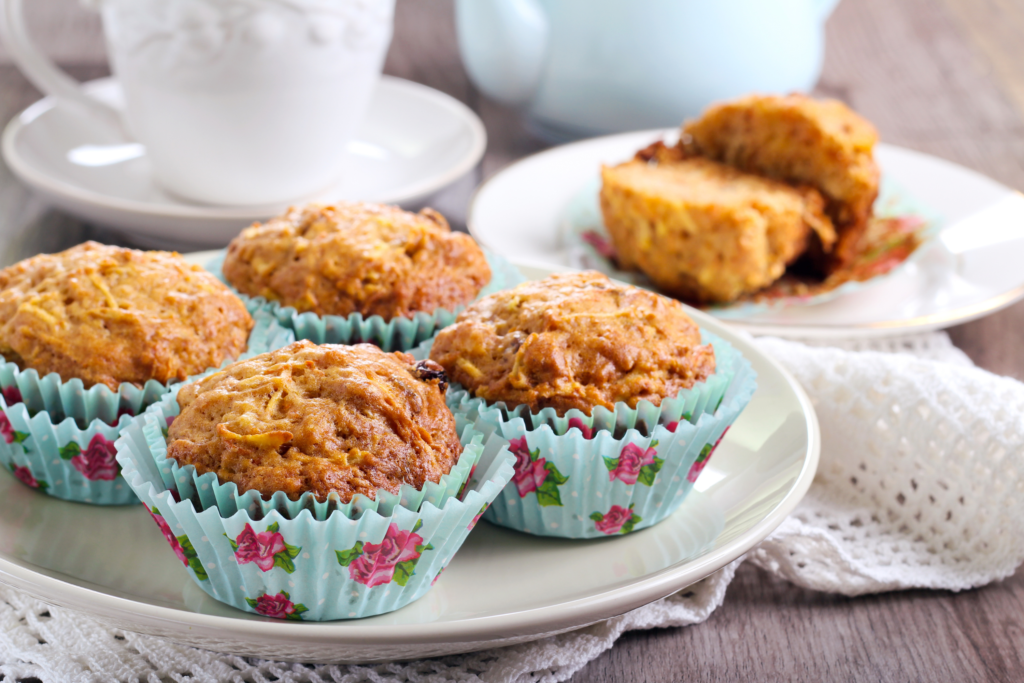
Carrot and apple muffins are a delicious and healthy breakfast option for your 9-month-old baby. These muffins are easy to make, and you can prepare them in advance and store them in an airtight container for up to three days.
To make carrot and apple muffins, you will need grated carrots, grated apples, flour, oats, cinnamon, baking powder, baking soda, salt, milk, butter, egg, and vanilla extract.
Preheat the oven to 375 degrees F and grease a 24-cup mini muffin pan with nonstick spray.
In a medium bowl, stir together the mashed banana, applesauce, carrots, maple syrup, butter/oil, eggs, and vanilla extract.
In a separate large bowl, whisk together the flour, baking soda, baking powder, salt, and cinnamon. Gently, but thoroughly, stir in the flour mixture into the wet ingredients until just combined.
Divide the batter among the prepared muffin pan, filling each cup to about 2/3 full. Bake for 12-15 minutes or until a toothpick inserted into the center of a muffin comes out clean.
Carrot and apple muffins are a great source of fiber and vitamins, including vitamin A and C. They are also low in sugar and high in protein, making them a perfect breakfast option for your little one.
9. Quinoa Banana Mash
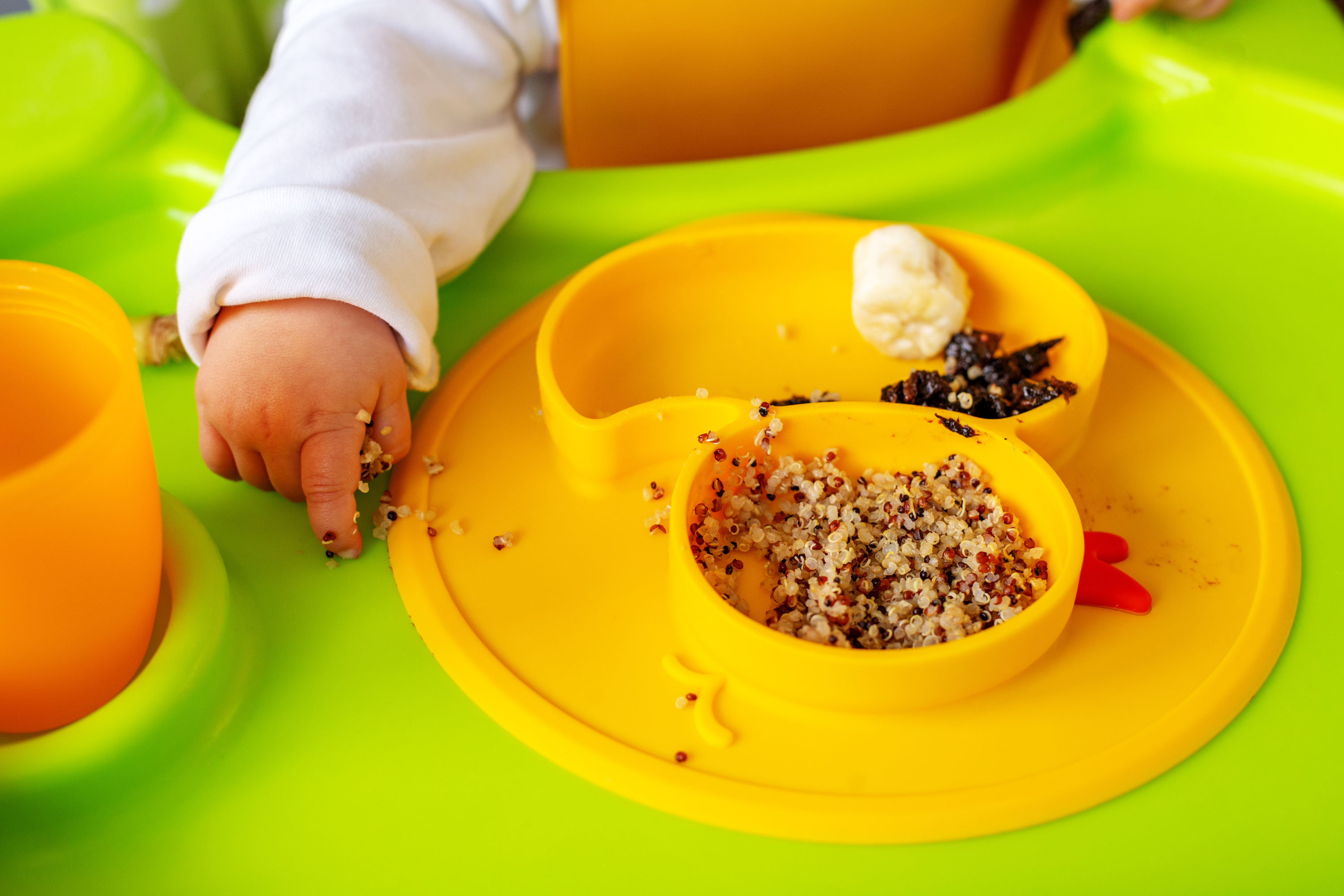
Quinoa is a great source of protein, fiber, and essential amino acids, making it an excellent addition to your baby’s diet.
This Quinoa Banana Mash recipe is easy to prepare and perfect for babies who are 9 months or older.
To make this recipe, rinse the quinoa until the water runs clear. Then, add the quinoa to a pot with water and bring it to a boil.
Reduce the heat and let it simmer for 15 minutes or until the water is absorbed, and the quinoa is tender.
Peel and mash a ripe banana, and mix it with the cooked quinoa.
You can add a drop of vanilla extract or some finely ground nuts to the banana if your baby is 12 months or older. Serve this delicious and nutritious mash to your little one for breakfast or as a snack.
This recipe is not only tasty but also packed with nutrients that your baby needs to grow and develop.
Quinoa contains fiber, calcium, folate, iron, and protein, while banana is rich in potassium and vitamin C. So, you can be confident that your baby is getting the right nutrients to start their day.
10. Peach Cottage Cheese
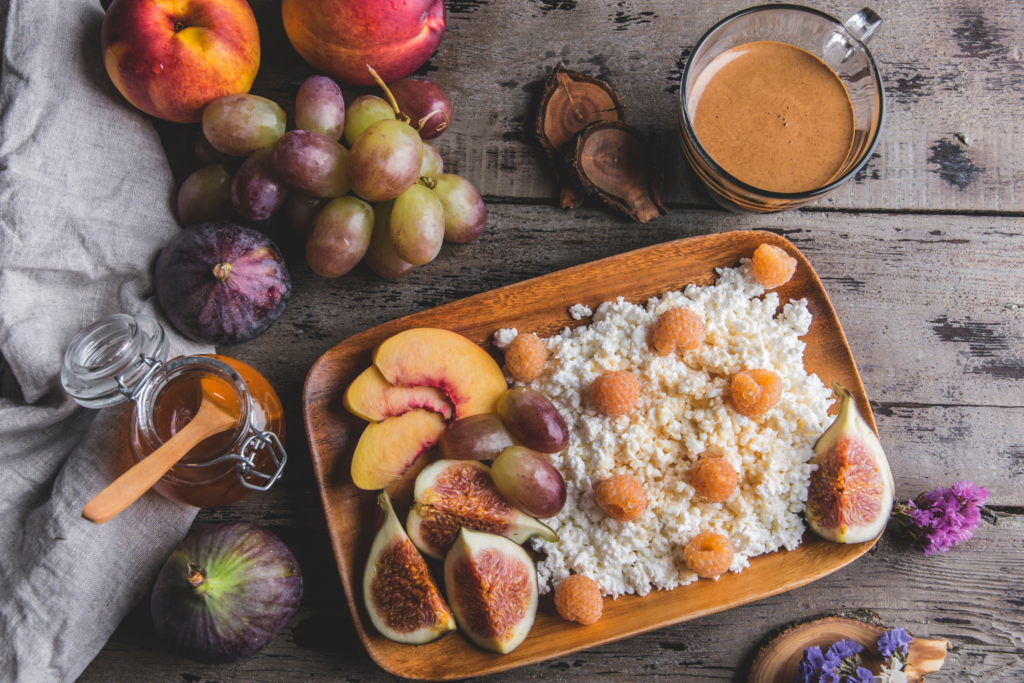
Looking for a delicious and healthy breakfast idea for your 9-month-old baby? Try this Peach Cottage Cheese recipe! It’s a fun, simple, and easy breakfast that your baby will love.
Cottage cheese is a great source of protein and calcium, which is essential for your baby’s growth and development. It also has a thick texture that makes it easy for your baby to use a spoon (or their hands) to eat.
To make this recipe, you’ll need whole-fat cottage cheese, a sprinkle of cinnamon, and a handful of chopped peaches.
Mix everything together and serve it in a bowl. You can also add other fruits like blueberries, strawberries, or bananas for a more varied taste.
This recipe is perfect for babies who are 9 months or older.
It’s a great way to introduce your baby to new textures and flavors while providing them with the nutrients they need. Plus, it’s easy to make and can be prepared in just a few minutes.
11. Pumpkin Pancakes
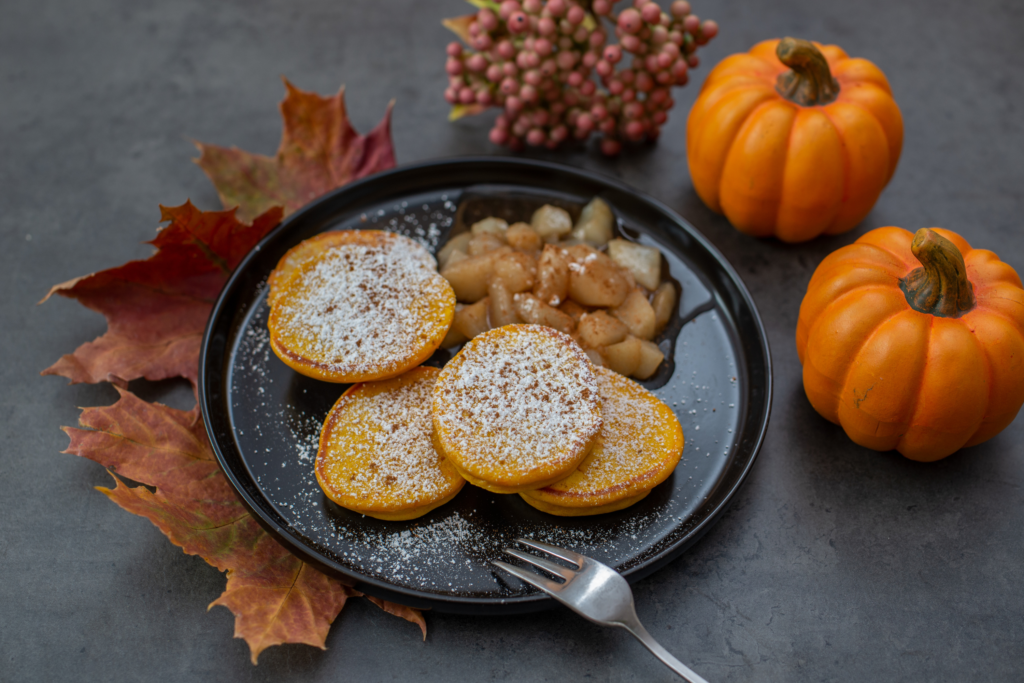
Pumpkin pancakes are a delicious and nutritious breakfast option for your 9-month-old baby. They are easy to make and can be customized to suit your baby’s taste preferences.
To make pumpkin pancakes, you will need pumpkin puree, flour, baking powder, cinnamon, milk, and eggs. Mix all the ingredients together in a bowl until you get a smooth batter.
Heat a non-stick skillet on medium heat and add a small amount of batter to the skillet at a time. Cook for a few minutes until golden brown and then flip over to cook the other side.
Pumpkin pancakes are a great source of fiber, vitamin A, and potassium. They are also a healthy alternative to traditional pancakes that are often high in sugar and calories.
You can serve pumpkin pancakes with a side of fresh fruit or yogurt for a complete and balanced breakfast for your baby.
When making pumpkin pancakes for your baby, ensure that the pancakes are small enough for your baby to hold and eat easily.
You can also make a batch of pumpkin pancakes in advance and freeze them for a quick and easy breakfast option on busy mornings.
12. Broccoli and Cheese Omelette
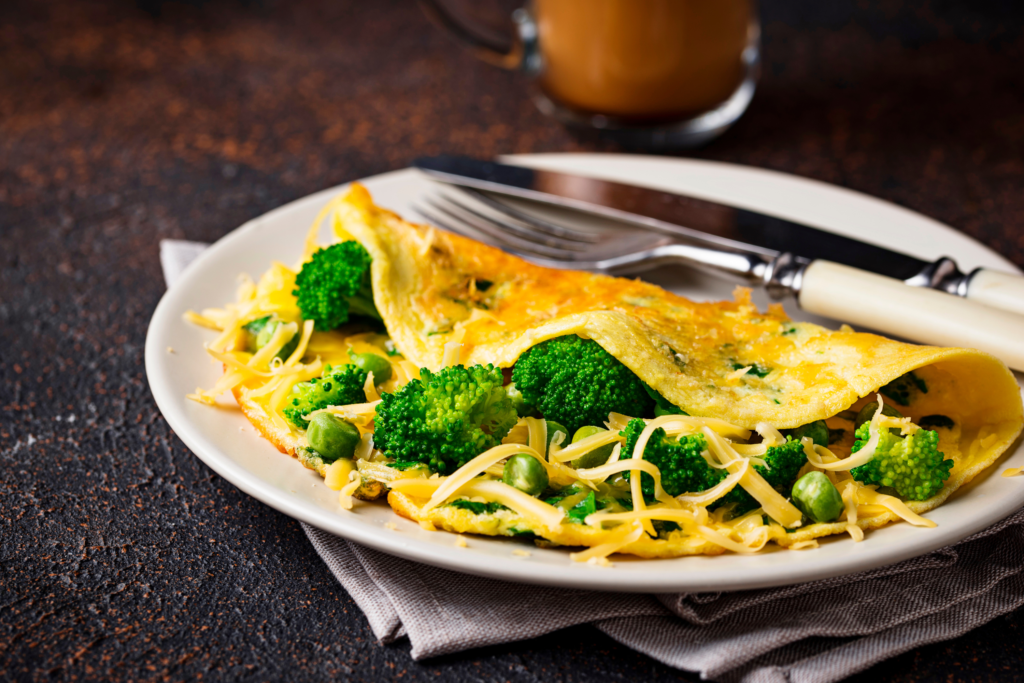
A broccoli and cheese omelette is a delicious and nutritious breakfast option for your 9-month-old baby. This recipe is easy to prepare and can be customized to suit your baby’s taste preferences.
To make a broccoli and cheese omelette, you will need eggs, broccoli, cheese, and a non-stick pan. Begin by steaming the broccoli until it is tender.
Then, beat the eggs in a bowl and add the steamed broccoli and cheese. Mix well.
Heat a non-stick pan over medium heat and add the egg mixture. Cook the omelette until it is set and golden brown on both sides. Cut it into small pieces and serve it to your baby.
Broccoli is a great source of vitamins and minerals, including vitamin C, vitamin K, and calcium. Cheese is a good source of protein and calcium, which are essential for your baby’s growth and development.
13. Pear and Oat Porridge
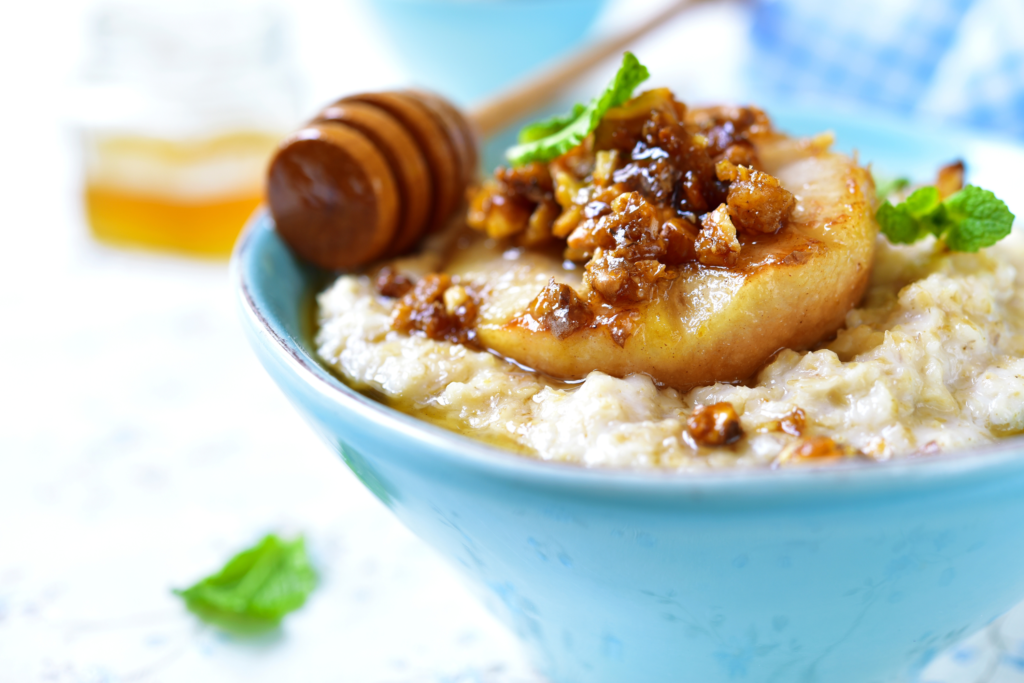
If you’re looking for a warm and comforting breakfast for your 9-month-old, pear and oat porridge is a great option. This recipe is easy to make and packed with nutrients that your baby needs to start their day off right.
To make pear and oat porridge, you’ll need to combine chopped pears, oats, water, and cloves in a medium saucepan. Heat the mixture on medium-low heat for 10-15 minutes or until the pear is tender, stirring occasionally.
Meanwhile, soak dates in warm water for 10 minutes. Then, add the cooked oats, pear, and dates to a blender or food processor and blend until smooth.
This recipe is a great way to introduce your baby to new flavors and textures. Pears are a great source of fiber and vitamin C, while oats are packed with complex carbohydrates and protein. The addition of dates adds natural sweetness to the dish, making it more appealing to your baby’s taste buds.
14. Strawberry Banana Smoothie
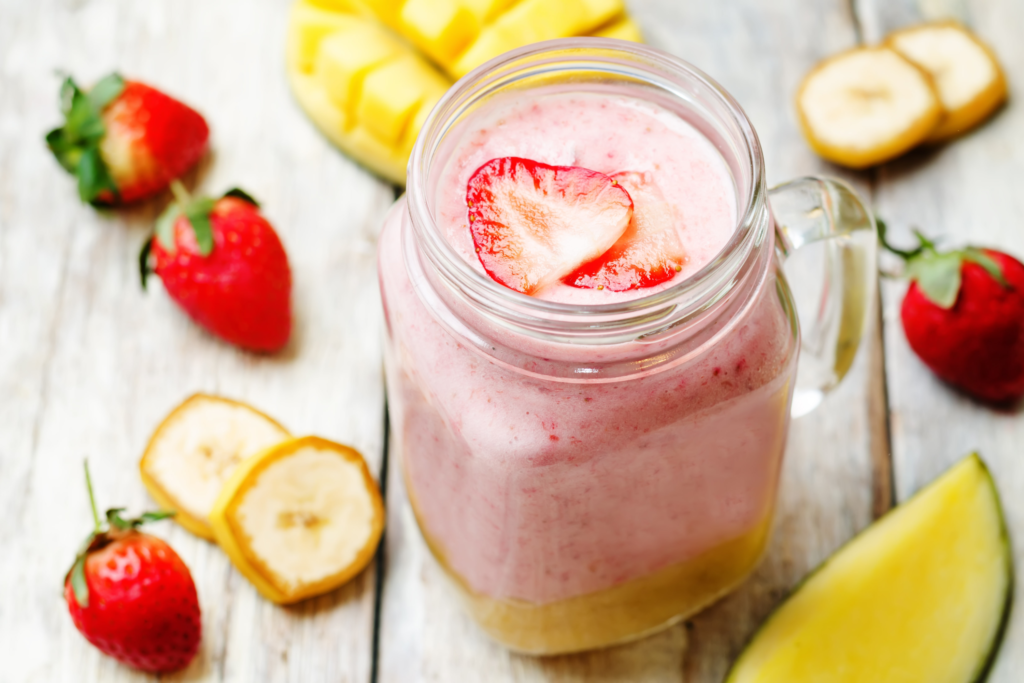
A strawberry banana smoothie is a delicious and healthy breakfast option for your 9-month-old baby. This smoothie is packed with nutrients and is easy to make. Here’s how you can make it:
Ingredients:
- 1 cup of fresh or frozen strawberries
- 1 medium ripe banana
- 1/2 cup of plain yogurt
- 1/2 cup of milk
Instructions:
- Wash the strawberries and remove the stems.
- Peel the banana and cut it into small pieces.
- Add the strawberries, banana, yogurt, and milk to a blender.
- Blend until smooth.
- Serve immediately.
This smoothie is a great way to introduce your baby to new flavors and textures. The sweetness of the strawberries and banana will appeal to your baby’s taste buds, while the yogurt and milk will provide the necessary protein and calcium for healthy growth.
Make sure to use fresh, ripe fruit for the best flavor and nutrition. You can also experiment with different types of milk and yogurt to find the combination that your baby likes best.
15. Zucchini Bread
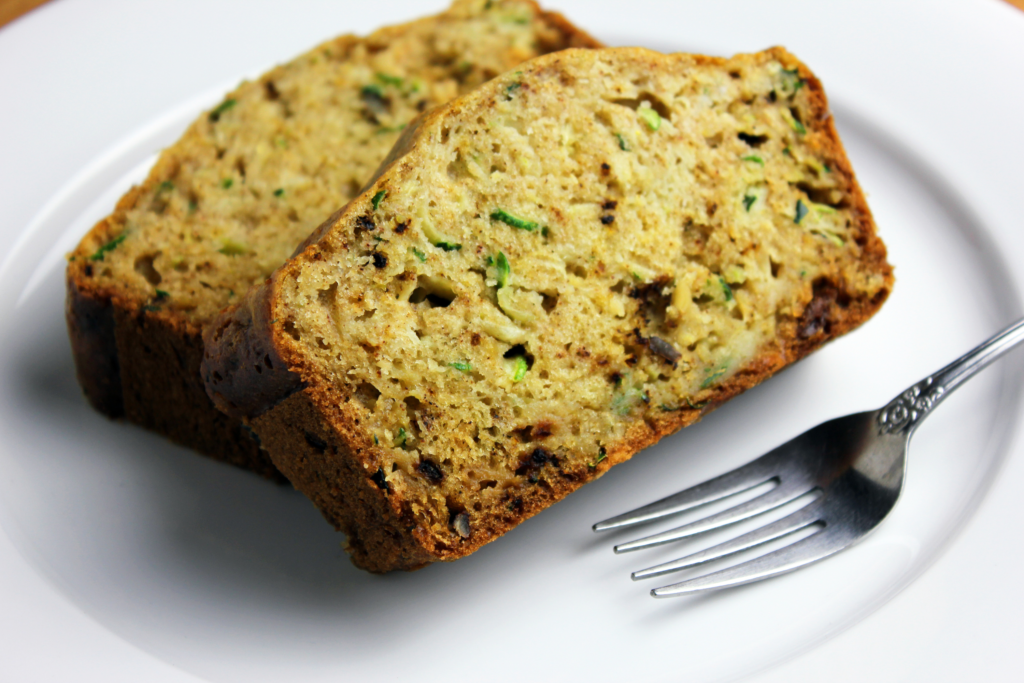
Zucchini bread is a delicious and nutritious breakfast option for your 9-month-old baby. It is a great way to introduce vegetables into their diet while also providing them with a tasty and filling breakfast.
To make zucchini bread, you will need to preheat your oven to 350°F. Grease a loaf pan with butter or oil and then dust it with flour.
In a medium bowl, whisk together the flour, salt, baking soda, baking powder, and cinnamon. In a large bowl, whisk together the eggs, applesauce, olive oil, agave nectar, and vanilla extract until well combined and smooth.
Next, stir in the grated zucchini and mix well. Then, add the dry ingredients to the wet ingredients and stir gently to combine fully.
Pour the batter into the prepared loaf pan and bake for 45-50 minutes or until a toothpick inserted into the center of the bread comes out clean.
Once the zucchini bread is done, remove it from the oven and let it cool for a few minutes before slicing it. You can serve it as is or spread some butter or cream cheese on top for added flavor.
16. Egg and Avocado Mash
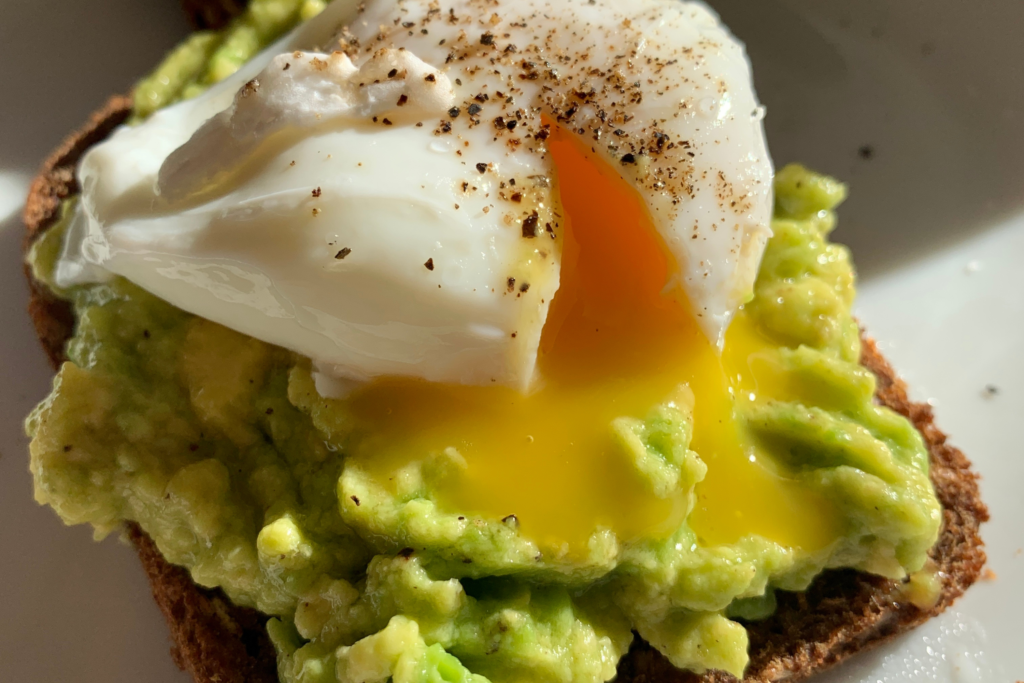
Egg and avocado mash is a delicious and nutritious breakfast option for your 9-month-old baby. Avocado is a great source of healthy fats, fiber, and vitamins K and C, which aid in bone, brain, and muscle development. Eggs, on the other hand, are packed with protein, vitamin D, B6, B12, and minerals such as zinc, iron, and copper.
To make this dish, you’ll need one ripe avocado and one boiled egg, peeled. Mash the avocado and egg together until you get a smooth consistency.
You can add salt and lime juice to taste, and even additional spices such as black pepper or garlic paste, depending on your baby’s preferences.
This dish is not only easy to make, but it’s also a great way to introduce your baby to different textures and flavors. You can serve it on toast or as a dip with soft fruits or vegetables.
Just make sure that the eggs are fully cooked before serving them to your baby to avoid the risk of salmonella. Additionally, if your baby has an egg allergy, you should avoid this dish altogether.
Nutritional Needs for 9-Month-Olds
As your baby grows, their nutritional needs change. At 9 months old, your baby requires a balanced diet that provides them with all the essential nutrients they need for healthy growth and development.
Essential Nutrients
Your 9-month-old baby needs a variety of nutrients to support their growth and development. These include:
- Protein: Protein is essential for building and repairing tissues in the body. Good sources of protein for your baby include breastmilk or formula, meat, poultry, fish, eggs, tofu, and legumes.
- Iron: Iron is important for healthy blood cell production and brain development. Good sources of iron for your baby include iron-fortified cereals, meat, poultry, fish, tofu, and legumes.
- Calcium: Calcium is necessary for building strong bones and teeth. Good sources of calcium for your baby include breastmilk or formula, cheese, yogurt, and fortified cereals.
- Vitamin D: Vitamin D is important for bone health and immune function. Your baby can get vitamin D from exposure to sunlight or from fortified foods such as formula or cereal.
- Fiber: Fiber helps promote healthy digestion. Good sources of fiber for your baby include fruits, vegetables, and whole grains.
Portion Sizes
At 9 months old, your baby’s stomach is still small, so they need small, frequent meals throughout the day. As a general rule, your baby should eat about ¼ to ½ cup of food per meal.
When introducing new foods to your baby, start with a small amount and gradually increase the portion size as they become more comfortable with the food. Remember, it’s important to offer a variety of healthy foods to ensure your baby gets all the nutrients they need.
Tips for Introducing New Foods
Introducing new foods to your 9-month-old baby can be an exciting and sometimes challenging experience. Here are some tips to help make the process smoother and more enjoyable for both you and your baby.
Signs of Readiness
Before introducing new foods to your baby, it’s important to make sure they are ready. Here are some signs that your baby may be ready to try new foods:
- Your baby can sit up with support and hold their head up steadily.
- Your baby has lost the tongue-thrust reflex, which means they can move food from the front to the back of their mouth.
- Your baby is showing an interest in food and may try to grab food from your plate.
If your baby is showing these signs, it may be time to start introducing new foods. However, it’s always a good idea to check with your pediatrician first.
Allergy Considerations
When introducing new foods to your baby, it’s important to consider the risk of allergies. Here are some tips to help reduce the risk of allergies:
- Introduce one new food at a time and wait a few days before introducing another new food. This will help you identify any potential allergies.
- Start with foods that are less likely to cause allergies, such as fruits and vegetables.
- Avoid giving your baby foods that are known to be highly allergenic, such as peanuts, tree nuts, and shellfish, until your baby is older.
If you have a family history of food allergies, talk to your pediatrician about when and how to introduce allergenic foods.
Balancing Homemade and Store-Bought Options
Pros and Cons
When it comes to feeding your 9-month-old baby, you may be wondering whether to rely on homemade or store-bought options. Both have their pros and cons, so it’s important to find a balance that works for you and your baby.
Homemade Options
Pros:
- You have complete control over the ingredients, ensuring that your baby is getting the best possible nutrition.
- You can tailor the flavors and textures to your baby’s preferences and developmental stage.
- It can be more cost-effective than buying pre-packaged baby food.
Cons:
- It can be time-consuming to prepare and cook homemade baby food.
- It requires planning and organization to ensure that you have enough food on hand.
- There is a risk of contamination if proper food safety practices are not followed.
Store-Bought Options
Pros:
- It is convenient and requires minimal preparation time.
- There is a wide variety of options available, including organic and allergen-free options.
- It can be a good option for when you are on-the-go or traveling.
Cons:
- It can be more expensive than homemade baby food.
- You have less control over the ingredients and may not know exactly what your baby is eating.
- Some store-bought options may contain preservatives or additives that you may want to avoid.
Safety Tips
Whether you choose homemade or store-bought options, it’s important to prioritize food safety to ensure that your baby stays healthy and happy.
- Always wash your hands and any utensils or equipment that will come into contact with the baby food.
- Use clean, fresh ingredients. Avoid using expired or spoiled food.
- Store homemade baby food in airtight containers in the refrigerator or freezer.
- When using store-bought baby food, check the expiration date. Also, look for any signs of spoilage before feeding it to your baby.
- Always supervise your baby while they are eating to prevent choking or other accidents.

